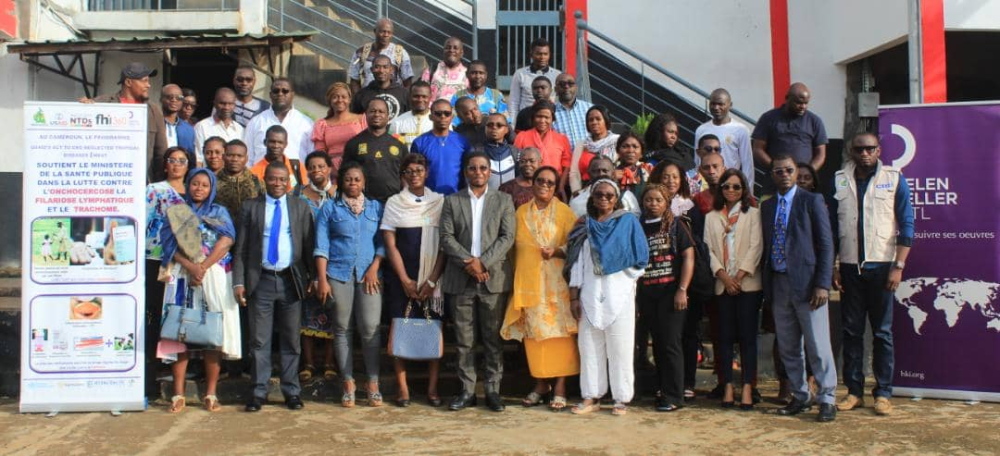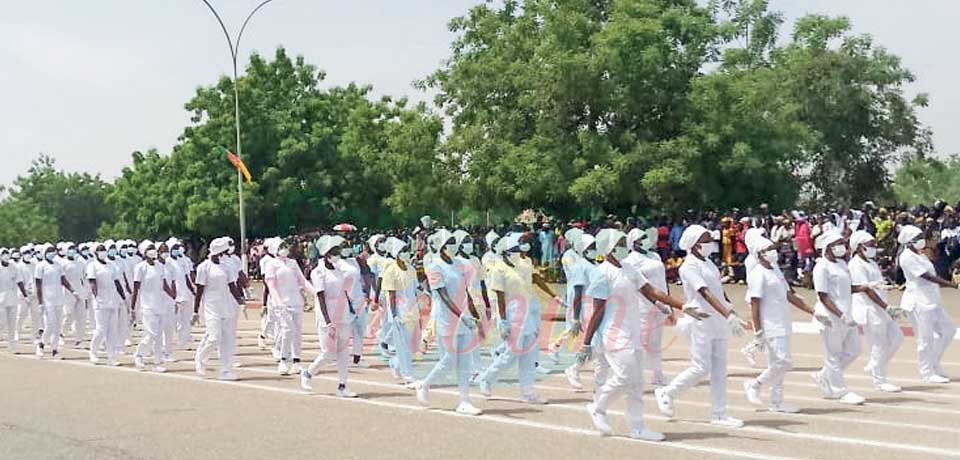2022 Onchocerciasis Treatment Campaign : Centre Region Records 80 Per cent Coverage Rate
- Par Kimeng Hilton
- 09 Oct 2022 14:28
- 0 Likes

A review and planning workshop held from October 8-9, 2022 in Mfou on the outskirts of Yaounde.
Having come to the end of the mass distribution of Mectizan® medication against Onchocerciasis or River Blindness for 2022, the Centre Regional Delegation of Public Health held a review and planning meeting. Which was attended by representatives of Helen Keller International, HKI, the implementing organisation in Cameroon of the United States Agency for International Development, USAID-funded Act to End NTDs/West programme with FHI360 as prime. The programme supports the Ministry of Public Health in the fight against Neglected Tropical Diseases.
Review, Planning Workshop
The regional workshop to review the 2022 Financial Year and plan for the 2023 Financial Year in the fight against Neglected Tropical Diseases, NTDs, held in Mfou on the outskirts of Yaounde from October 8-9, 2022. The meeting was in two phases – presentation of activities and results of the 2022 Financial Year, and planning for the next campaign in the 2023 Financial Year. We made a Strengths, Weaknesses, Opportunities and Threats, SWOT analysis of the situation.
Good Treatment Cover
“The Centre Region attained almost 80 per cent treatment cover in the fight against Onchocerciasis,” said Dr Avom Joel, a member of the National Coordination Unit for Neglected Tropical Disease Control. “We encourage health districts to lay more emphasis on drug management, which is a consequence of unreliable population census. This makes it difficult to place orders for the right quantities of drugs. Health districts should ensure that leftover drugs are returned to enable regional authorities to make their tallies and come up with the right quantities of medication to be ordered in future,” Dr Avom advised.
More Advocacy Needed
“The Centre Regional Delegation of Public Health should step up advocacy with administrative authorities for more people to accept treatment and other programme activities. Time will come when partners will no longer be there. This should not cause field work to stop,” Messi Paul Felicien, the Monitoring and Evaluation Officer of the National Onchocerciasis Control Programme counselled. “On the other hand, health districts should continue to stress the importance of taking Mectizan® against River Blindness. Helen Keller International has always been on the side of government in the fight against Onchocerciasis. I urge them not to give up the good work,” Messi Paul appealed.
Challenges, Lessons Shared
“We presented results, challenges and shared good experiences. This enabled us to learn from each other what to apply in our districts for the next round. The main challenge however was with Community Health Workers visiting communities to take a census of those to receive Mectizan®, and later returning to hand over the medication,” Dr Haddison Eposi, the District Medical Officer for Sa’a explained.
Polio Strategy Employed
“Over the years, we have been trying to employ strategies to increase coverage. This year we used the same strategy as for polio campaigns. Community Health Workers first went out to mark households to receive Mectizan®. We were then able to say which areas had not been marked and then sent them back to the field. The data they brought helped us to determine the right quantities of drugs to distribute to people. This greatly helped in better drug management,” she said.
Better Drug Distribution Planning
According to Dr Eposi, more sensitisation is required. “Some people refuse Mectizan® because they are scared of the side effects. With proper sensitisation at all levels, this can be overcome,” she noted. “Many people miss drug distribution because they were in their farms. This means we have to schedule distribution when most people are at home. Moreover, we ...
Cet article complet est réservé aux abonnés
Déjà abonné ? Identifiez-vous >
Accédez en illimité à Cameroon Tribune Digital à partir de 26250 FCFA
Je M'abonne1 minute suffit pour vous abonner à Cameroon Tribune Digital !
- Votre numéro spécial cameroon-tribune en version numérique
- Des encarts
- Des appels d'offres exclusives
- D'avant-première (accès 24h avant la publication)
- Des éditions consultables sur tous supports (smartphone, tablettes, PC)















Commentaires